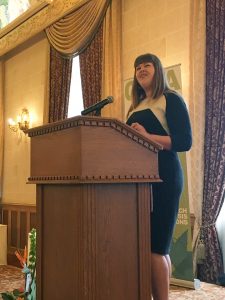By Lynne Fernandez
First published in the Winnipeg Free Press December 18, 2018
As reported in the Free Press, Brian Pallister is “fixing the province’s finances”, with what he calls small, gradual funding cuts. Two questions arise from his claim: do our finances really need fixing, and what happens when these cuts accumulate?
There’s no fiscal mess in Manitoba that requires immediate action. Drastic action is required, however if we are to avoid massive future spending to deal with climate change, our infrastructure deficit, income inequality and to help Manitoba’s northern communities. To ignore these problems in the name of exaggerated concerns about government debt is irresponsible.
By Mengistu Wendimu and Annette Aurélie Desmarais
This study finds milk is significantly costlier in First Nations communities than in Winnipeg and Northern Manitoba. The cost was higher in First Nations with and without access to an all-weather road. The study is based on a milk price survey in August and September 2016 in 26 stores located in 22 communities in northern Manitoba (15 First Nation and 8 non-First Nation communities) and 11 stores in Winnipeg for comparative purposes. The report also includes focus group interviews with residents in Northern First Nations.
The issues of low availability and high prices of food (including milk), limited access to and control over land, water and other natural resources can be linked to colonization. Action on the Truth and Reconciliation Commission Calls to Action and the United Nations Declaration on the Rights of Indigenous peoples to fully realize the human rights of Indigenous Manitobans is critical to the development of healthy, safe, just and sustainable Indigenous food systems.
Milk prices in Manitoba are regulated by the Milk Price Review Act and administered by the Manitoba Milk Price Review Commission. The Act is limited to one-liter containers of milk sold within a 240 km and 360 km radius from Winnipeg and Brandon. The report recommends extending current milk price regulations to include all First Nation communities in northern Manitoba. The report also recommends ensuring access to traditional foods, from which First Nations communities historically sourced nutrients essential for healthy human development and well-being. The study finds that Federal and Provincial freight subsidy programs are not effectively reducing the price of milk and other food to affordable levels in northern First Nation communities. The higher prices can be attributed to lack of competition of food vendors in First Nations communities.
By Lissie Rappaport
In Winnipeg there is a need for more affordable housing, as 21 percent of households (64,065 households) are living in unaffordable housing – according to CMHC’s definition of spending more than 30 percent of income on shelter. Additionally, there are approximately 1,500 people experiencing homelessness in the city. While affordable housing has traditionally been provided by federal or provincial governments, municipalities have a range of tools to respond to need and are most connected to the local housing market. Inclusionary housing (IH) is a one tool available to cities and was recently enabled by the Province of Manitoba.
This research informs the potential for IH in Winnipeg. Through examining existing literature and case studies in two American cities, learnings from how the policy is used elsewhere are summarized. Interviews with IH experts and those involved in local development help contextualize these learnings from elsewhere and inform key considerations for the local context. As IH is used most commonly used in fast-growing municipalities, this research explores how inclusionary housing could be implemented in Winnipeg, a city long considered to be slow-growth with a stable housing market. Read full report HERE.
By Don Sullivan
Manitoba is poised to be a major Canadian player in providing large quantities of silica sand used in hydraulic fracking by the oil and gas industry. This presents major risks that should be fully explored before allowing shovels into the ground.
Canadian Premium Sand, a Canadian publicly traded company, is proposing to develop an open pit mine and processing facility to initially extract some 45 million tons of aggregate to produce roughly 26 million tons of frack sand over the life span of the mine. The company has stated it could expand its operation if demand warrants, as the company has the rights to 360 million tons of known frack sand reserves through its quarry lease holdings in the area.
THE CROWN LANDS AMENDMENT ACT (IMPROVED MANAGEMENT OF COMMUNITY PASTURES AND AGRICULTURAL CROWN LANDS)
How will the changes reflected in Bill 35 affect the Community Pastures Program, part of what was the federal government’s Prairie Farm Rehabilitation Administration initiative? Referred to as “Canada’s greatest success story” – the program started in 1935 to deal with the devastation the Dust Bowl brought to the southern prairies. It included initiatives to deal with erosion, water access, irrigation and grass management through the Community Pastures Programs. These pastures are found in Alberta, Saskatchewan and Manitoba and cover over 2 million acres in total.

By Rebecca Blaikie
Good Morning. It is an honour to have been asked to join you today, and to be a part of this great event to celebrate and pay tribute to a great friend and mentor of mine Judy Wasylycia-Leis.
When I was reflecting on what to share here today it struck me that one of Judy’s greatest strengths is something that we can all benefit from doing more of in our lives, and that is the seemingly simple act of just showing up.
 By Lynne Fernandez
By Lynne Fernandez
An October 18th provincial news release advises that former BC Premier Gordon Campbell will be heading an economic review into the Keeyask Generation Project and Bipole III Transmission and Converter Stations Project.
Tax payers may well ask why we need to spend $2.5 million to study an issue that has been studied to death. Even the media release acknowledges that Campbell will be building “on work previously conducted by the Public Utilities Board and Manitoba Hydro.” We can also add here the expensive and extensive report prepared by the Boston Consulting Group.

The Errol Black Chair (EBC) in Labour Issues was established to honour the legacy of activist, author, politician, educator and founding member of CCPA-MB, Errol Black.
Each year at the annual EBC Brunch, held to raise funds for EBC research and CCPA Manitoba, we honour an individual or organization who has served our community with distinction. The person or organization must reflect the values of community service, advocacy and social justice that Errol stood for.



Follow us!